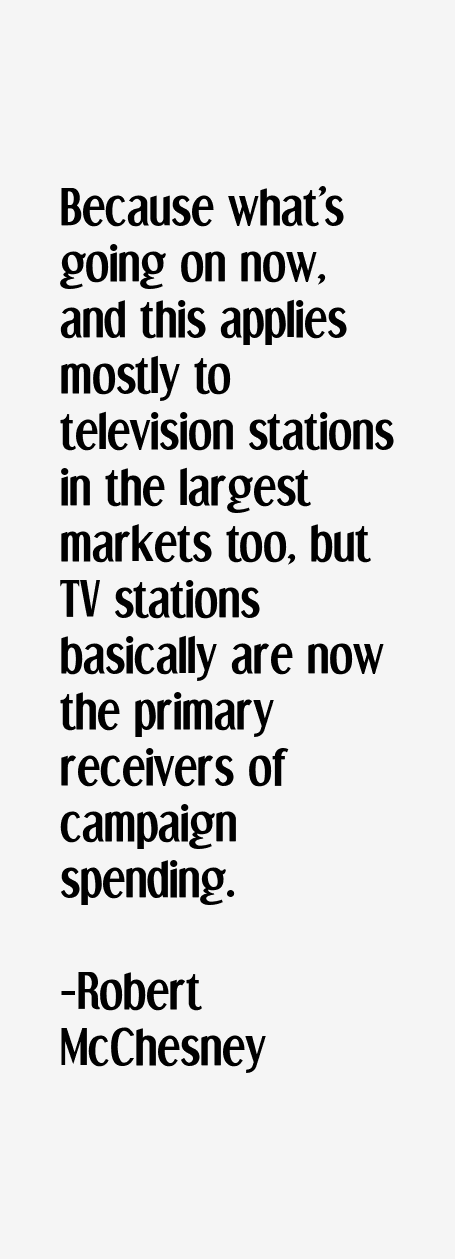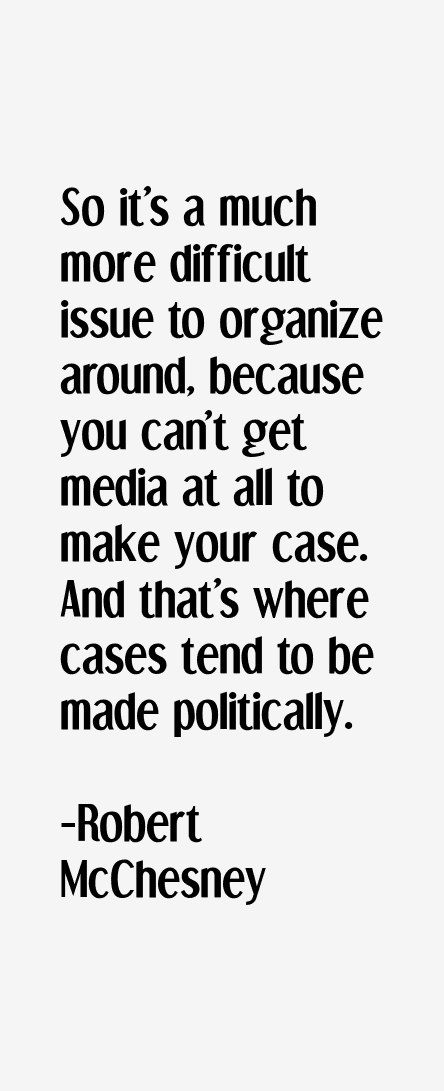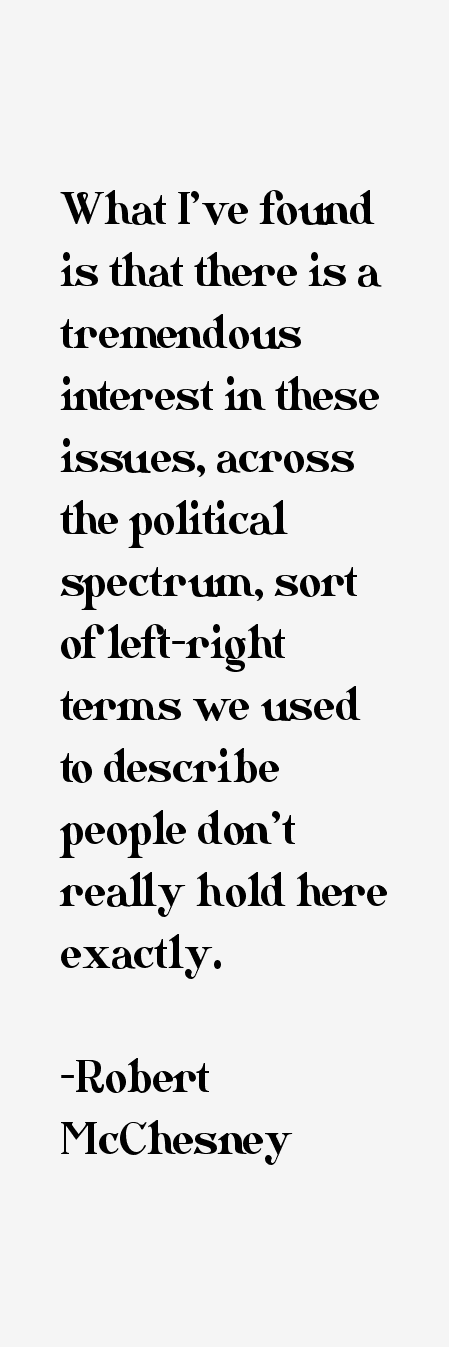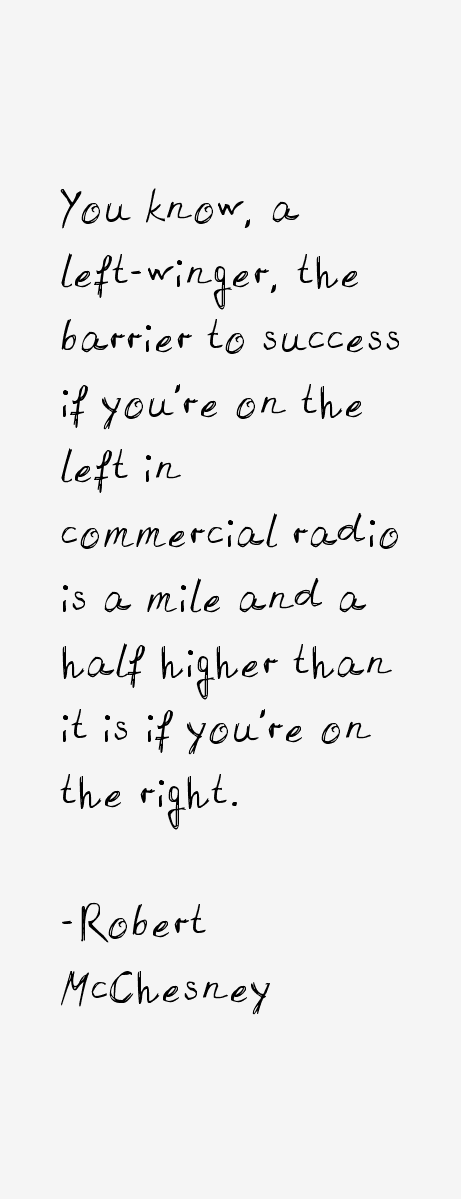Robert McChesney Quotes & Sayings (Page 3)
Robert McChesney quotes and sayings page 3 (critic). These are the last 10 out of 30 quotes we have.

“Because what's going on now, and this applies mostly to television stations in the largest markets too, but TV stations basically are now the primary receivers of campaign spending.”

“Maybe if you and ten of your friends could pool your savings and borrow some money and actually buy some obscure station in Sonoma, and then take some chances and have some fun.”

“So it's a much more difficult issue to organize around, because you can't get media at all to make your case. And that's where cases tend to be made politically.”
“So that what you tend to see is someone like a Rush Limbaugh, he's the classic case because he's the most successful, he didn't sort of like come out of his mother's womb with the highest ratings in the country.”

“So the system we have in radio and television today is the direct result of government policies that have been made in our name, in the name of the people, on our behalf, but without our informed consent.”

“The cost of congressional and presidential campaigns has been leaping every two or four years. I think this year it will be 60 percent more than 1996; well over twice as much as in 1992 in the presidential and congressional races.”

“The relationship between the media owner, their relationship isn't strictly with people and audiences. It's also with advertisers, and that's the most relationship in radio; in fact it pays the bills.”
“The whole process of getting licenses to broadcast, which took place decades ago, was done behind closed doors by powerful lobbies, and wealthy commercial interests got all the licenses with no public input, no congressional input for that matter.”

“What I've found is that there is a tremendous interest in these issues, across the political spectrum, sort of left-right terms we used to describe people don't really hold here exactly.”

“You know, a left-winger, the barrier to success if you're on the left in commercial radio is a mile and a half higher than it is if you're on the right.”
Robert McChesney Quotes Rating
No Ratings Yet
Leave A Comment
























